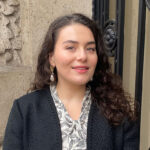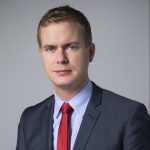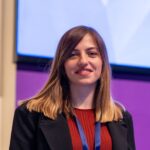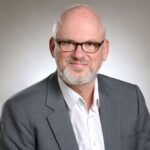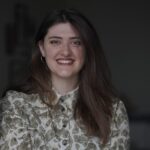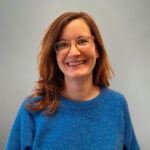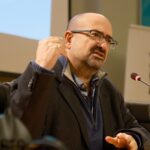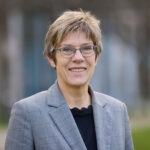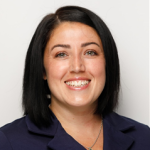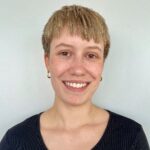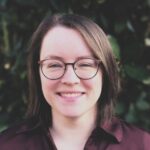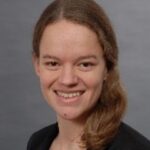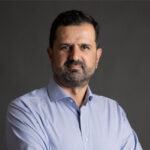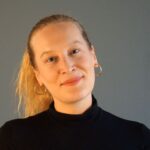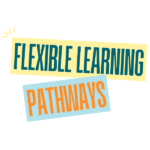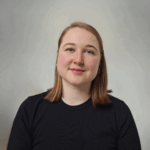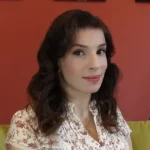Speakers at the 2025 Annual Events
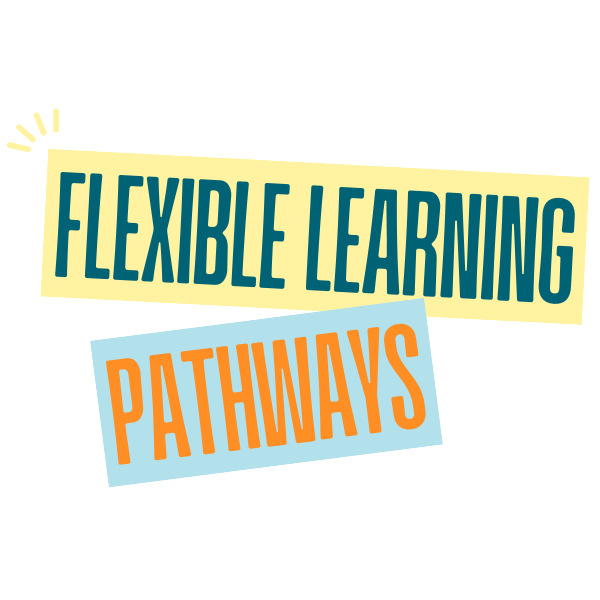
Elif Bahar is a Labour Market Economist at the OECD, in the Skills and Future Readiness Division of the Employment, Labour and Social Affairs Directorate. Her recent work includes analysing the OECD Survey of Adults Skills, developing a framework for the flexible provision of adult learning, and understanding the adequacy of training supply for the green and AI transitions. Prior to joining the OECD, Elif was an Applied Microeconomist at the Australian Treasury, where her work using large administrative and survey datasets informed the Australian government’s policy response during the COVID-19 pandemic. Her past research centres on the rise of AI technologies in the labour market, productivity-enhancing reallocation of workers, and the gender earnings gap.
John Evers is Secretary General of the Austrian Adult Education Centres (Volkshochschulen/VÖV) and Chairman of the Austrian Society for Political Education (ÖGPB). He also has just been appointed by the Austrian government as the representative for the field of education on the Public Broadcasting Council (ORF-Publikumsbeirat). He obtained a doctorate in history via the path of "Second chance education" and taught in adult education for many years. He also works as a journalist and photographer.
Gustav Fridolin is teaching history and religion at the adult popular education organized by the Swedish charity organization Stockholm City Mission. He is also a part-time doctoral student in Education at Gothenburg University, and a member of the executive board of the European Association for the Education of Adults based in Brussels. He serves as the Chairperson of the Advisory Board to Stockholm Municipality on Agenda 2030. Fridolin was elected Member of Parliament in 2002 for the Green party. Between 2011 and 2019, he was co-leader for the Green party and from 2014 he served as Minister for Education in the Swedish government. During his time in the government, he was responsible for the Swedish relationship with UNESCO. He has published six books, about politics, including sustainable industry and environmental politics.
Victoria Furhalo is a social project manager with over a decade of experience, specialising in adult education since 2019. As the co-founder and director of the Network of Education Centers based in Lviv libraries, I`ve spearheaded the development of accessible lifelong learning opportunities for the community. I also serve as the responsible party for Lviv`s membership in the UNESCO Global Network of Learning Cities. A frequent speaker at international conferences on adult education, recent engagements include presentations at events in Chisinau (2022), Pécs (2024), Aarhus (2024), and Al Jubail (2024).
Uwe Gartenschlaeger has dedicated his career to advancing adult education on various levels, culminating in his role as director and chief executive of DVV International in March 2023. His extensive contributions as both a practitioner and policymaker have significantly impacted trainers and students across Europe, Asia, and Russia. Joining DVV in 1995, Gartenschlaeger served in multiple leadership roles, including country director for Russia and regional director for Central and Southeast Asia. His efforts have been pivotal in restructuring adult education systems and developing policies in partner countries. Notably, he managed training cycles for adult educators in Laos and Cambodia from 2015 to 2019, creating communities of practice that have inspired similar initiatives in other regions.
As deputy director of DVV, he developed standardized training curricula like "Curriculum globALE," now a UNESCO-recommended tool. In 2019, he was elected president of the European Association for the Education of Adults (EAEA), where he advocated for the European Union’s New European Agenda for Adult Learning. Gartenschlaeger, who studied history, political science, and philosophy, is also passionate about fostering a culture of remembrance and reconciliation.
Angeliki Giannakopoulou is a Project Coordinator at the European Association for the Education of Adults. She holds an Integrated Master’s degree in Computer Engineering and Informatics and has followed certified training on Adult Education and Counseling while currently studying for her Masters degree on Gender Studies. Before her work in the EAEA she was a project manager and adult educator in Greece and her key areas of interest on ALE are digitalisation and media, safe public spaces (both physical and digital) gender, and intersectionality.
Stefan Jagsch is an adult educator and currently Head of Department for Innovation and International Projects at Wiener Volkschulen (Vienna Adult Education Center). He is also responsible for the coordination of socio-political education. The main focus of his work lies in enhancing the emancipating potential of education for marginalized groups of society. He studied Social and Cultural Anthropology at the University of Vienna and has a lot of experience with community organizing due to his political work as a District Councillor for the Viennese District of Ottakring.
Marta Jendeková has over 25 years of professional experience in the non-formal adult education sector - as a trainer, project manager and researcher. She is interested in the adult education policies, mainly on sub-national levels, including the Learning Cities. She likes making big topics in civic, green and sustainability competences accessible to the public, also through online learning. She is a member of the Executive committee of the Slovak umbrella organization of AE institutions (AIVD SK) and served on the EAEA Board in 2023-2025.
Raffaela Kihrer is Secretary General at the European Association for the Education of Adults (EAEA) and has extensive experience in advocacy and policy on adult learning and education at the European and international level, with a particular focus on citizenship and development. Since June 2022, she is also an elected Vice-President of the Lifelong Learning Platform which brings together all sectors of education. Her background is in International Development Studies, and she is a trained teacher in secondary school education and adult learning.
George A. Koulaouzides is Associate Professor of Methodology of Adult Education at the Hellenic Open University. With a background in mathematics and the sociology of adult education, he is known for advancing the internationalization of Greek adult education. He believes that adult learning should be critical and lead to transformative social action. His work focuses on transformative learning, educational biography, and critical reflection. He has published extensively, translated major works, and was inducted into the International Adult and Continuing Education Hall of Fame in 2019. From 2019 to 2025, he served on the EAEA Executive Board, including a term as Vice President (2023-2025).
Annegret Kramp-Karrenbauer is President of the German Adult Education Association (DVV). She took over the office from Prof Rita Süssmuth in 2015 while she was still prime Minister of the state of Saarland. She became CDU General Secretary in 2018. In the same year, she was elected to succeed Chancellor Angela Merkel as Federal Chairwoman of the CDU and held the office until January 2021. From 2019 to 2021, she was Federal Minister of Defence.
Claudia Laubenstein is a Head od Unit at the National Agency "Bildung für Europa" at BIBB in Germany. She is responsible for supporting Erasmus+ mobility for staff and learners in adult education and for implementing the European Agenda for Adult Learning. A political scientist by training, she has been working in European education programmes since 2001 and is committed to strengthening general adult education in Germany and across Europe with the European educational programme Erasmus+.
Dearbháil Lawless is the Chief Executive Officer in AONTAS, the National Learning Organisation in Ireland. Dearbháil attended at the UNESCO CONFINTEA VII conference in 2022 as an Irish national delegate. Her background in education includes teaching in community education, Further Education and Training and lecturing in Higher Education.
Verena Lehnen is part of the National Coordination Point of the European Agenda for Adult Learning in Germany. She has worked in various international cooperation programs in the field of adult education and vocational education and training and holds a Master's degree in International and European Politics. Her work focuses on fostering exchange among adult learning professionals on key issues such as sustainability, political education and social inclusion.
Sylvia Liuti is one of the three co-founders of FORMA.Azione srl, a consulting company based in Italy – Perugia, specialised in applying for public funds, mainly addressing the education and training sector, and the societal challenges. She has more than 30 years of expertise in European projects design and coordination, being focused on European networks and strategic cooperation partnerships.
Gender Equality policies in the labour market are her favourite field of work, giving the opportunity to always mainstream gender in designing, implementing and assessing several projects and actions, mainly targeting educators, teachers and trainers, guidance experts, HR and DEI managers. Since 2016 she started working in Media and Information Literacy, by developing and further applying the gender mainstreaming approach, thus contrasting gendered disinformation and online harassment and Gender-Based Violence.
Being a mother of two sons aged 28 and 26 she had the opportunity to practice and learn relevant transversal skills that she is able to invest in her job on a daily basis.
Tina Mavrič coordinates capacity building trainings and events. She supports several projects in the Erasmus+ and Horizon Europe programmes that focus on sustainability and skills validation. With a background in environmental sciences, ethnology, and cultural anthropology, she has more than ten years of experience working on various European projects and initiatives related to the youth and lifelong learning sectors. She has excellent knowledge of European debates on adult education, and, in her work at EAEA, she strives to ensure the policy relevance of project outcomes.
Tanja Möller is an expert at the National Agency “Bildung für Europa” at BIBB in Germany. She has a Master’s degree in Scandinavian Studies. Tanja has worked in the team for Erasmus+ mobility projects in adult education at the National Agency since 2022. Her focus is on public relations work to promote Erasmus+ mobility projects among the adult education providers in Germany.
Dr. habil Balázs Németh is a researcher on European adult and lifelong learning policy development
and comparative adult education. He is an associate professor and reader in Adult Learning and
Education at the University of Pécs. Research topics of his are: Politics and Adult Education;
Comparative Adult Education; History of Modern European Adult Education and Learning City-
Region Developments in association with the global network of learning cities programme (GNLC) of
UNESCO Institute for Lifelong Learning. Balázs Németh is a EUCEN Ambassador and Board
member of EAEA and PIMA.
Manos Pavlakis is an Asst. Professor in Adult Learning and Coordinator of the Master's in Educational Leadership at Frederick University, Cyprus. With over 20 years of experience, he has designed, implemented, and evaluated training and research programs for public bodies, private companies, and civil society organizations. He has also played leading roles in European education projects and served as the Learning Manager of UNESCO's Quality and Excellence Awarded YouReCa program.
His active contribution to civic society was recognized when the NGO Youthnet Hellas, which he co-founded, received the 2013 European Citizen Prize from the European Parliament for its work in non-formal education, youth empowerment, intercultural dialogue, and active citizenship. Manos holds degrees in Greek Literature (National and Kapodistrian University of Athens) and European Culture (Hellenic Open University), postgraduate diplomas in Human Resource Management (Leeds University Business School) and Political Science (University of Crete), a PhD in Adult Education (Hellenic Open University), and a postdoctoral specialization from Stockholm University focusing on inclusion in workplace learning.
Greta Pelucco is a specialist in international relations and business human rights, with a strong focus on the intersection of policy, advocacy, and civic engagement. Currently serving as Policy and Advocacy Coordinator at the European Association for the Education of Adults (EAEA), she has experience in the context of civic lobbying, as well as leading and coordinating civic and social projects. Passionate about international and European public affairs and their intersections with social justice, human rights, and democratic governance.
Kira Preckel is a Coordinator and Project Manager for European projects with a background in Cultural and Social Anthropology from the University of Vienna. Former Secretary General of the Austrian League for Human Rights, she specializes in grant applications, project development and management, and building partnerships at both European and national levels.
Thomas Richert is responsible for international education at the Education Office of the City of Cottbus, where he coordinates all Erasmus+ adult education mobilities.
He also advises Cottbus institutions on funding opportunities for international exchange and young Cottbus residents within the framework of Eurodesk. He also supervises the ESK volunteers in Cottbus.
Heike Richter has been the head of the Leipzig Adult Education Center (vhs Leipzig) since 2015.
After graduating with a degree in engineering education from the Otto von Guericke University of Technology, she initially worked as the director of the Adult Education Center Weißwasser and the Adult Education Center Niederschlesischer Oberlausitzkreis. From 1998 to 2015, she was the head of the Volkshochschule Chemnitz. Heike Richter is also vice chair of the Saxon Adult Education Association (Sächsischer Volkshochschulverband e. V.) and an assessor on the board of the German Adult Education Association (Deutscher Volkshochschul-Verband e. V.). She is also the chair of the shareholders' meeting of the Grimme Institute, as well as a member of the shareholders' meeting of the Grimme Research Institute and the telc gGmbH.
Marina Sakač Hadžić is EAEA’s Communications, Capacity-Building, and Membership Officer. She manages and supports EAEA’s internal and external, and project communication. In capacity-building and membership, she supports members and helps facilitate trainings and other EAEA events. Marina has an MSc in Social and Cultural Anthropology from KULeuven, interested in gender and menstrual studies; she brings her academic and professional experience to build effective communication.
Joachim is passionate about social justice and co-creation. In 2014, he left his NGO career to embark on a mission to support like-minded civil society actors and social entrepreneurs in becoming more powerful and innovative. He co-founded the Civil Society Academy, which soon expanded to different parts of the world. Joachim is an outstanding trainer and coach. He loves facilitating collective processes for organisations and networks that focus on creating impact with disadvantaged groups. Fun and creativity are key ingredients in his facilitation. He excels in leadership, culture, innovation, and strategy. After over 20 years in Africa and Asia, he is now based in Berlin.
Christian Soyk has been working at the Leipzig Adult Education Center (vhs Leipzig) since 2015. In addition to his tasks in program planning, his further focus of activities were educational counseling, training for adult educators and digitization and media education in adult education as well as civic education for youths. In addition, he is active in the development of strategic partnerships and mobilities within the framework of the ERASMUS+ program.
Since 2023, he has been Head of the Pedagogy department and is responsible for the strategic development of the program areas. He is also the Quality Management Officer and Deputy Head of the Leipzig Adult Education Center (vhs Leipzig).
He holds a degree in education and studied educational sciences at the Goethe University in Frankfurt am Main.
Alex Stevenson is a Head of Programme at Learning and Work Institute (L&W), leading the organisation’s research and development work on adult basic skills and learning in communities, including non-formal learning. Alex has worked on a range of projects for clients including the Department for Education, the Home Office, the Ministry of Housing, Communities and Local Government and the Greater London Authority. On community learning and non-formal education, his projects have included developing and piloting the use of social metrics to measure outcomes in non-formal learning, and supporting city regions with the devolution of the Adult Education Budget. Before joining L&W, Alex taught, managed and developed adult basic skills and ESOL provision for over 13 years. Alex is an executive board member at EAEA and an executive committee member at the European Basic Skills Network.
Marina Weisband, born in Ukraine in 1987, is a psychologist and expert in digital participation and education. From 2011 to 2012, she was political director of the Pirate Party Germany. Today, she continues to be politically active, is involved with the Green Party in the areas of digitalisation and education and fights for children's rights. From 2020-2022, she was co-chair of the digitalisation association D64 e.V.
She is the author of several books, e.g. ‘Wir nennen es Politik - Ideen für eine Zeitgemäße Demokratie’ (2013, Tropen); ‘Frag uns doch - Ein Jude und eine Jüdin erzählen aus ihrem Leben’ (2020, Fischer, with Eliyah Havemann), ‘Was uns durch die Krise trägt’ (2023, wbg, with Frido Mann) and ‘Die neue Schule der Demokratie’ (2024, Fischer).
Since 2014, she has been working on the aula project - now aula gGmbH - a concept for political education and liquid-democratic participation of young people in the rules and affairs of their schools and extracurricular organisations (www.aula.de)
She also has a regular radio column on Deutschlandfunk and advises on various aspects of digital change and democracy. She advises companies and film-makers on issues of diversity and participation.
